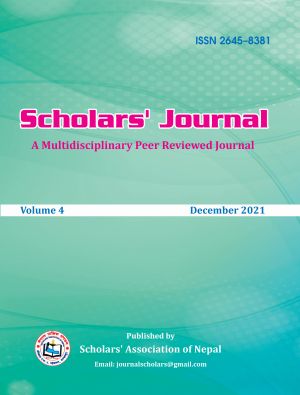Mother Tongue Based Multilingual Education in Nepal
DOI:
https://doi.org/10.3126/scholars.v4i1.42465Keywords:
Instruction, medium of instruction, monolingualism policy, translanguagingAbstract
Nepal is a multilingual country consisting of 123 languages as reported by the census 2011 (CBS, 2012). Linguistically, all languages are equal. However, there are ideological differences among scholars and stakeholders of language. Critical theorists see language as a tool of dominating the minorities whereas utilitarians see language as a path from local to global world. From ethnic perspective, language is an identity and for politicians and activists, it is a means to activate people and a matter of ideology. For pedagogues, language of instruction has always been a dilemma and a sensitive issue. In this context, this review paper analyses the existing language policy of using mother tongue based multilingual education in Nepal, is just the continuation of assimilationist ideology in disguise and proposes language co-existence approach with a choice in language of instruction in policy and practice as a solution to maintain linguistic identity of ethnic groups. Furthermore, translanguaging can be used as a pedagogical solution in multilingual classrooms.
Downloads
Downloads
Published
How to Cite
Issue
Section
License
Copyright (c) 2021 Basanta Raj Dhakal

This work is licensed under a Creative Commons Attribution-NonCommercial 4.0 International License.
Copyright © The Authors

